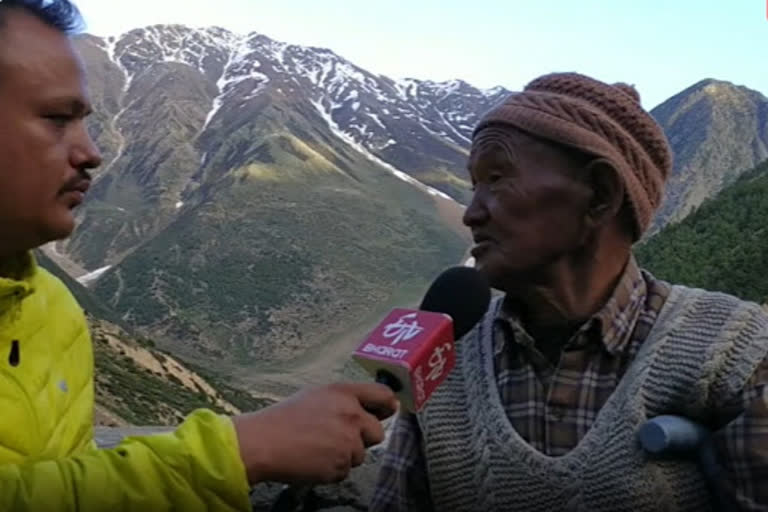Chamoli (Uttarakhand): People residing in border villages are often considered the Indian Army's second line of defence, and the best example of the above is an 86-year-old from Uttarakhand's Chamoli district.
86-year-old Kundan Singh, a resident of Niti, considered the last Indian village near the Chinese border in Uttarakhand's Chamoli district, had played a small but significant role in the 1962 Sino-Indian war.
Speaking to ETV Bharat, Singh revealed that as a 24-year-old back then, he used to transport essential ration and other supplies to the troops stationed at the border.
However, what made the job extremely tough was the absence of roads back then. Singh used to mount supplies onto animals and walk long distances - from Joshimath to the border areas.
"I have supplied everything to the troops - be it ration, tenting equipment, or utensils. I used to mount the supplies on horses, mules and even goats and used to walk 20-30 kilometres to the border," Singh said.
Read: More troops deployed near Geldung border in Uttarakhand
Though the border in Chamoli did not see much activity during the 1962 war, troops were still stationed in numbers at the Barahoti and Geldung borders.
"At a time, I used to carry 50-60 kilos of provisions with me. Scaling these steep slopes was a tough task," remarked Singh.
Though he is 86 years old now, Singh did not even take a moment to hesitate as he said he would still be ready to help the Indian Army if the need arises.
Located at an elevation of 3,600 metres above the mean sea level, the tiny village on Niti is situated close to the Saraswati river. The villagers, considered to be a mix of Indian, Tibetan, and Mongolian descent have often come forward to help the Indian troops in the past.
Read: Ladakh stalemate: BRO expedites work near India-China border



